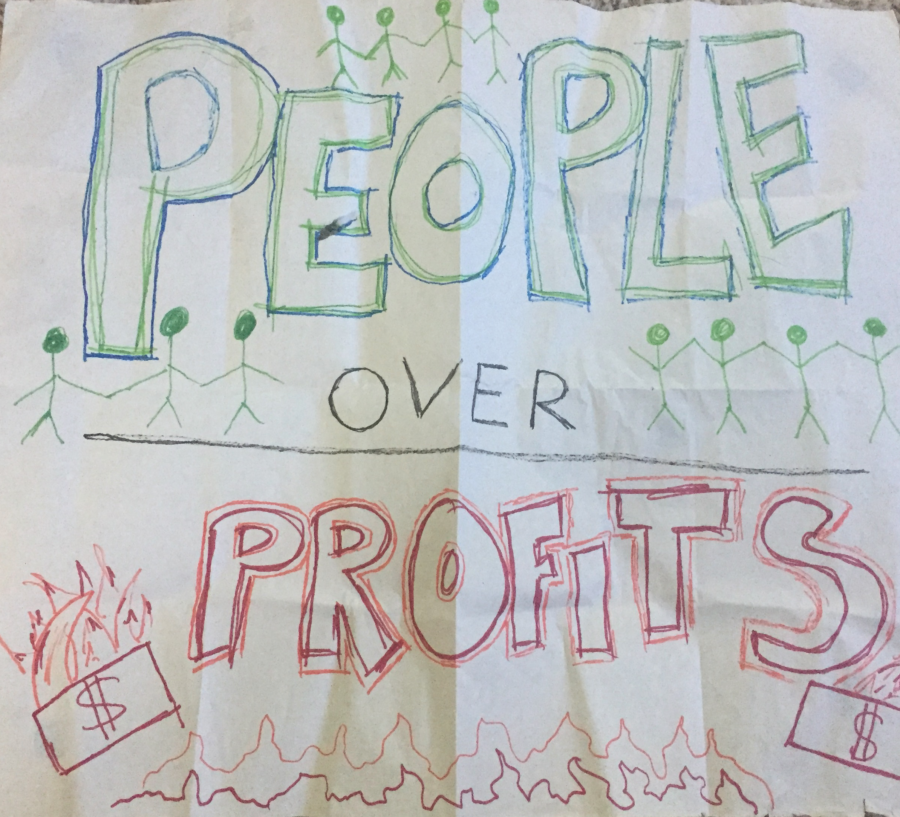Word in the higher ed sector is that Gen Z – entering the workplace fast and furious – is filled with practical-minded, socially-conscious individuals ready to hold politicians and businesses to higher standards than previous generations before them. Gen Z are becoming direct consumers, and the generations before them are scrutinizing the ways of business as well, ultimately leading the big-names to sign a statement claiming that it’s time for corporations to begin upholding themselves to this standard.
At first, I found the news impressive. The activist in me rejoiced that maybe corporations might begin to be held more accountable.
A week later, I joined my grandfather for an early breakfast before work. The man is 87 years old and has been retired for some time, but he still keeps up with the political happenings. Until he retired, he worked for a brokerage company.
He doesn’t understand why this statement is being celebrated.
“Corporations were supposed to be for their employees and for the people all along!” He exclaimed, “And [the statement] doesn’t even mention that CEOs make so much more than other employees – hundreds of times more.”
And he’s right. The New York Times noted that the statement is more of a mission statement, but doesn’t outline a plan of action. It leads one to question if the statement is full of the promise of societal improvements, or just the promise of a successful marketing campaign for the companies onboard. Even the author of an article in Forbes about the statement was critical.
Gen Z are the most diverse and best educated generation yet, there are more of them, they are extremely entrepreneurial, and they crave mentorship and training from their employers. They are also very young, much like myself – a very young millennial. Basically, unless you are an older baby boomer or a historian of economics, you likely don’t understand what corporate culture was like pre-1970’s. My grandfather entered the job world in the 1950’s, a couple of decades before Milton Friedman made his statements about corporations: “The social responsibility of a corporation is to increase its profits.” (Thank you for the quote, NYT)
Since many of us, including Gen Z, are unfamiliar with the history, my grandfather’s statement made me realize that to be excited by the news of this statement is to be fooled. There are many of us who grew up with this idea that festers in neoliberal capitalism, that corporations at their core are meant to put profits over people. But, based on my grandfather’s reaction to this new statement, maybe it hasn’t always been that way, and people should have put Friedman’s ideas aside and held corporations to a higher standard all along.
And these companies need younger customers, both as consumers and as employees. If Gen Z seeks personalization and attention under the veiled threat of starting your company’s next competitor, your company better promise to deliver what this large consumers want and need. Gen Z needs to buy your products and use their educated minds to strengthen your business – not the competition.
There are two things about the statement that make me skeptical. The first, it’s concerning to me that two companies are not on this list: Google and Enterprise Holdings, Inc. Both of these companies are big, and while any business will have its own flaws, these two companies are quite supportive of their employees. What does it say that these two obvious names are not among the names on this statement?
The second: let’s consider a detail about this statement more closely. One of the goals listed on this “statement” on a new “purpose of the corporation” states:
“We respect the people in our communities and protect the environment by embracing sustainable practices across our businesses.”
I’d like to point out, that while climate change is ringing not the “Alert!” bells, but the “CRISIS!!!” bells internationally, Chevron, Exxon Mobil, and Marathon Oil have all signed this statement. Once they have changed the direction of their companies to tackle actually clean energy sources (nuclear or one of the numerous renewable sources that could really take off if a company invested in that kind of pivot), I will stop being skeptical of this statement.
Until then, it looks to me like a marketing ploy – one that Milton Friedman would likely approve of.

